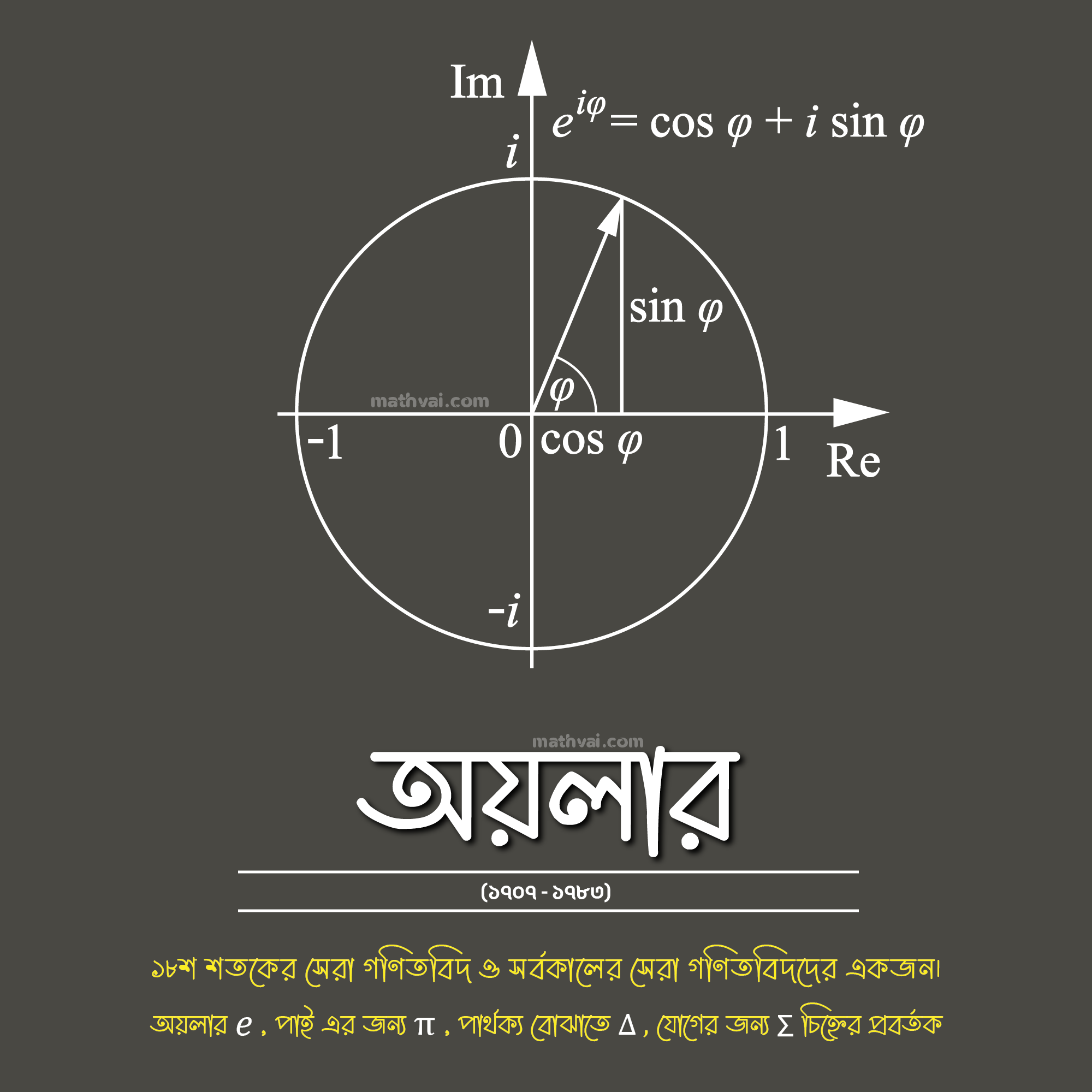Euler
Published - Thu, 14 Dec 2023

Leonhard Euler, one of history's most prolific
mathematicians, reshaped the landscape of mathematics and science through his
genius, leaving an indelible mark on the field. Born on April 15, 1707, in
Basel, Switzerland, Euler's early years were marked by intense curiosity and a
passion for learning. His father, a pastor, recognized his talent early on and
provided him with a strong education.
At the age of 20, Euler enrolled at the University of Basel,
where Johann Bernoulli, a renowned mathematician, recognized his exceptional
abilities. Under Bernoulli's guidance, Euler delved deeper into mathematics,
rapidly proving his prowess by solving complex problems. His innate ability to
grasp intricate mathematical concepts led to his publication of the solution to
the famous Basel problem at just 28 years old. This achievement garnered
widespread attention, solidifying his reputation as a brilliant mathematician.
Euler's career took him to various European cities, where he
worked at academies and collaborated with other prominent mathematicians. His
vast contributions spanned diverse fields of mathematics, including calculus,
number theory, graph theory, and mechanics. Euler's groundbreaking work in
calculus laid the foundation for many modern mathematical principles. He
introduced the concept of mathematical functions and notation, notably the use
of 'e' for the base of natural logarithms and 'i' for imaginary numbers,
revolutionizing mathematical symbolism.
His prolific output is staggering; Euler published over 800
books and papers during his lifetime, despite facing significant challenges. At
the age of 28, he lost sight in one eye due to a fever, and a few years later,
he became completely blind. Remarkably, this didn't hinder his work; he
continued to produce exceptional mathematical works, relying on his mental
calculations and the assistance of his sons and colleagues to transcribe his
ideas.
Euler's contributions to graph theory, through the Seven
Bridges of Königsberg problem, laid the groundwork for the field. He formulated
the theory of vertices and edges, establishing the basis for graph theory as a
separate branch of mathematics.
Beyond mathematics, Euler made significant contributions to
physics, particularly in mechanics and fluid dynamics. His work on the laws of
motion and the motion of fluids helped advance the understanding of these
fundamental principles.
Leonhard Euler's legacy extends far beyond his numerous
theorems, formulas, and discoveries. His dedication, resilience, and insatiable
curiosity serve as an inspiration to generations of mathematicians. His impact
on mathematics and science is immeasurable, and his name remains synonymous
with brilliance and innovation in the world of mathematics.
In 1783, Euler passed away in St. Petersburg, Russia,
leaving behind a vast body of work that continues to shape the way we perceive
and understand the intricacies of mathematics and science. His life and
contributions stand as a testament to the power of human intellect,
perseverance, and the enduring pursuit of knowledge. Euler's legacy continues
to inspire mathematicians and scientists worldwide, serving as a guiding light
in the pursuit of discovery and understanding in the realm of mathematics.
Created by
Comments (0)
Popular categories
Mathematician Series
11Math Wall Poster
7Visual Math
7Chemistry
1Units
1Latest blogs

Brahmagupta
Sat, 16 Dec 2023

thales
Sat, 16 Dec 2023

Leibniz
Sat, 16 Dec 2023
